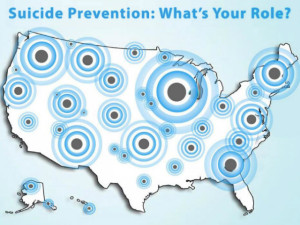One of the most contentious questions in the gun debate is whether gun control can affect suicide rates and, if so, should more restrictions be imposed?
In the United States, gun suicides outnumber gun homicides by almost two to one. This creates a problem for supporters of gun control. They must frighten people to achieve their goals, but most of us don’t feel threatened by suicide.
For half a century, the anti-gun lobby has tried to confuse the public and demonize gun ownership in order to promote more government control. For them, firearms suicide is just one more issue to be exploited.
You can call their method sleight of hand or bait and switch. They point to a dramatic gun homicide event like a mass murder, as if it is characteristic of the total number of “gun violence” deaths. They hope you won’t ask any probing questions as they wave a hand and say: “These aren’t the droids you’re looking for.”
Suicide and homicide are very different things, with drastically different motives and causes. Lumping them together makes it more difficult to make progress on reducing either one.
Do we need more gun laws to reduce the number of suicides? A serious look at this must address two major questions. The first is:
Do restrictive gun laws reduce the suicide rate?
We’ve all seen statements from anti-gun groups pointing out that the rate of firearms suicides tends to be higher in countries with more firearms. However, if the goal is to reduce suicide, the critical number is total suicides, not just those using a particular method.
Firearms may be the first choice of many who wish to end their lives, and for obvious reasons. But humans are clever and resourceful beings who are quite able to substitute alternate methods. Would that be preferable to the gun control crowd? I submit that it’s both illogical and ghoulish to act as if suicide by one method is worse than another.
If you’ve seen the misleading statements put out by gun control groups, you might expect the U.S. to be at the very top of the suicide charts. In fact, the United States ranks 50th, far behind such heavily gun-controlled countries as Japan, South Korea, France, India, Russia and Poland.
Efforts to push for more gun laws based on a claimed concern over suicide rates is disingenuous. Some laws, in fact, might be counterproductive.
For example, it has long been customary among lawful gun owners (the real gun culture) to ask a friend to keep your guns if you are having suicidal thoughts. In a classic example of unintended consequences, laws requiring background checks and fees for all gun transfers could make this sensible measure more difficult and consequently less likely to occur. The possibility that this might increase the suicide rate is not something that gun controllers want you to think about.
The second essential question is:
What is the appropriate role of government in suicide prevention?
Historically, suicide has been proscribed by some religions, but accepted by others as an honorable act under certain conditions. In modern Western societies, the concept of death with dignity and the medically assisted suicide movement are shifting public perception toward greater acceptance of suicide in certain cases.
Beyond perceptions, how do the ethical and practical costs and benefits balance for society? Respecting people’s freedom to grant themselves a quick and painless end to their own lives has both positive and negative sides.
At what point does intervention go beyond providing reasonable assistance and become nanny state interference? Is the right to end one’s own life a component of human dignity?
These are uncomfortable questions, but ones that should be honestly discussed whenever someone advocates new laws to make suicide more difficult.
One interesting point is that the rate of firearms suicide is highest among older white men. As a member of that demographic, I’m not at all surprised. Many of us were raised with a strong belief in personal responsibility. We wouldn’t want to be in a situation where we become a drain on the resources of our families or society, and we wouldn’t expect anyone else to bear the burden of ending our lives.
I can’t speak for others, including my colleagues at DRGO, but I take some comfort in knowing that I have that option available, should it ever be needed. I trust myself to make the right choice for me without asking anyone for permission.
—Dr. Michael S. Brown is a pragmatic Libertarian environmentalist who has been studying the gun debate for three decades and considers it a fascinating way to learn about human nature and politics.
All DRGO articles by Michael Brown, OD.
.


